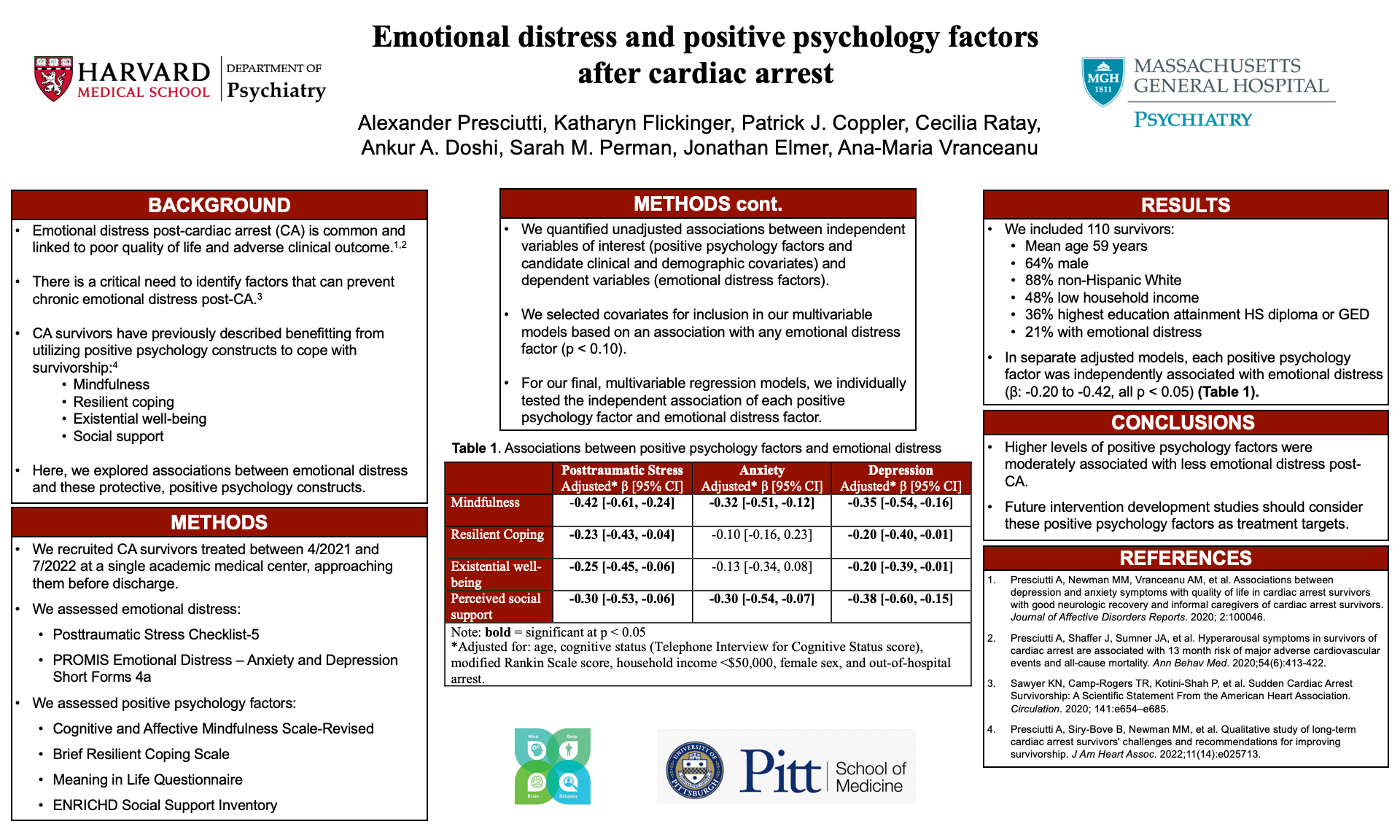Scientific Abstract
Background: Emotional distress post-cardiac arrest (CA) is common and linked to poor quality of life and adverse clinical outcome. As such, there is a critical need to identify factors that can prevent chronic emotional distress post-CA. CA survivors have previously described benefitting from utilizing positive psychology constructs (mindfulness, resilient coping, existential well-being, social support) to cope with survivorship. Here, we explored associations between emotional distress and these protective, positive psychology constructs.
Methods: We recruited CA survivors treated between 4/2021 and 7/2022 at a single academic medical center. We assessed emotional distress (Posttraumatic Stress Checklist-5 and PROMIS Emotional Distress – Anxiety and Depression Short Forms 4a) and positive psychology factors (Cognitive and Affective Mindfulness Scale-Revised, Brief Resilient Coping Scale, Meaning in Life Questionnaire, and ENRICHD Social Support Inventory) in the days before discharge. We quantified unadjusted associations between independent variables of interest (positive psychology factors and candidate clinical and demographic covariates) and dependent variables (emotional distress factors). We selected covariates for inclusion in our multivariable models based on an association with any emotional distress factor (p < 0.10). For our final, multivariable regression models, we individually tested the independent association of each positive psychology factor and emotional distress factor.
Results: We included 110 survivors (mean age 59 years, 64% male, 88% non-Hispanic White, 48% low household income, 36% highest education attainment HS diploma or GED, 21% with emotional distress). In separate adjusted models, each positive psychology factor was independently associated with emotional distress (β: -0.20 to -0.42, all p < 0.05).
Conclusions: Here we show that higher levels of positive psychology factors (mindfulness, resilient coping, existential well-being, and social support) were moderately associated with less emotional distress post-CA. Future intervention development studies should consider these positive psychology factors as potential treatment targets.
Search posters

